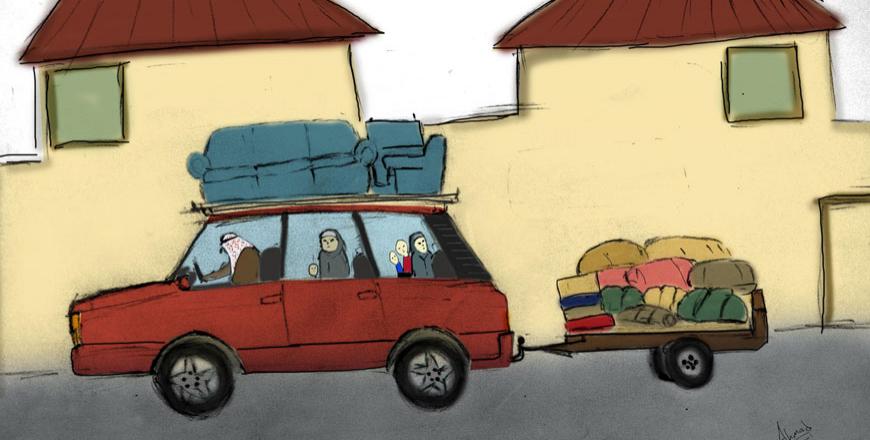You are here
Clan of alleged police killer to be evicted under ‘jalwa’ agreement
By Rana Husseini - Jan 28,2017 - Last updated at Jan 28,2017
AMMAN — The family of an Anti-Narcotics Department (AND) agent killed last week agreed over the weekend to a tribal “jalwa” settlement with the family of the suspect, tribal leaders said on Saturday.
The terms of the settlement include the eviction of the suspect’s family from the area and calls for his execution.
Sgt. Mohammad Salameh Saqarat was part of a force that raided a public garden in Zawahreh neighbourhood in Zarqa, around 22km northeast of Amman, when he was shot and killed by the suspect on January 23.
The suspect fled the area, but turned himself in and confessed to the killing the following day.
“We sealed a ‘jalwa’ agreement with the family of the suspect, whereby they have to be evicted from the area, including all those related to the suspect through the third paternal ancestor,” tribal and community leader Fadel Saqarat said.
The jalwa agreement, which entails that the suspect’s family move from Zarqa to Mafraq, also “called for his [the suspect’s] execution”, he added.
The victim’s family made specific demands as part of a government-sponsored “confession atwa”, or tribal truce, as an initial agreement brokered by mediators.
The atwa acknowledged that the suspect committed the crime and gave guarantees that the conditions of the victim’s family be met.
Among the family’s conditions are “dropping the right of the suspect to hire a lawyer and not seeking revenge on anyone other than the suspect”, Saqarat said.
The eviction of an entire family, or “jalwa”, entails the forced relocation of a clan if one of its members murders someone.
A jalwa’s aim, its supporters say, is to avoid friction between the tribes of the victim and the killer, if they live in the same area.
Tribal leader and judge Talal Madi told The Jordan Times in a recent interview that the idea of jalwa was first introduced when “there were no state and government institutions to enforce the law”.
“Tribes used to resort to this measure to prevent bloodshed, because otherwise, revenge would take more lives,” he explained.
Madi added, however, that with the emergence of prisons, security agencies and penal codes, tribes should no longer stick to traditions that violate the core concept of the civil state.
Another tribal leader, Barjas Al Hadid, recently told The Jordan Times that he believes that, while jalwa might cause injustices to a lot of people, it is in the best interests of both parties.
However, he said, it should be applied according to “very strict rules”.
Two other suspects in the shooting have been arrested and referred to the State Security Court prosecutor for further questioning and indictment.
Saraqat is survived by his wife and three-year-old daughter, official sources told The Jordan Times last week.
On Saturday, Public Security Department Director Maj. Gen. Ahmad Sarhan Faqih decided to promote Saqarat posthumously to the rank of warrant officer, the Jordan News Agency, Petra, reported.
Related Articles
AMMAN — A number of tribal leaders in Salt signed an honour pact on Tuesday limiting the Jalwa (forced relocation) to the persons listed in
AMMAN — Forced relocation is likely the fate of entire Jordanian families belonging to a tribe if a relative kills a person from another tri
AMMAN — Tackling the tradition of "jalwa" (forced relocation) through the law makes its implementation obligatory, Senate President Faisal F
















